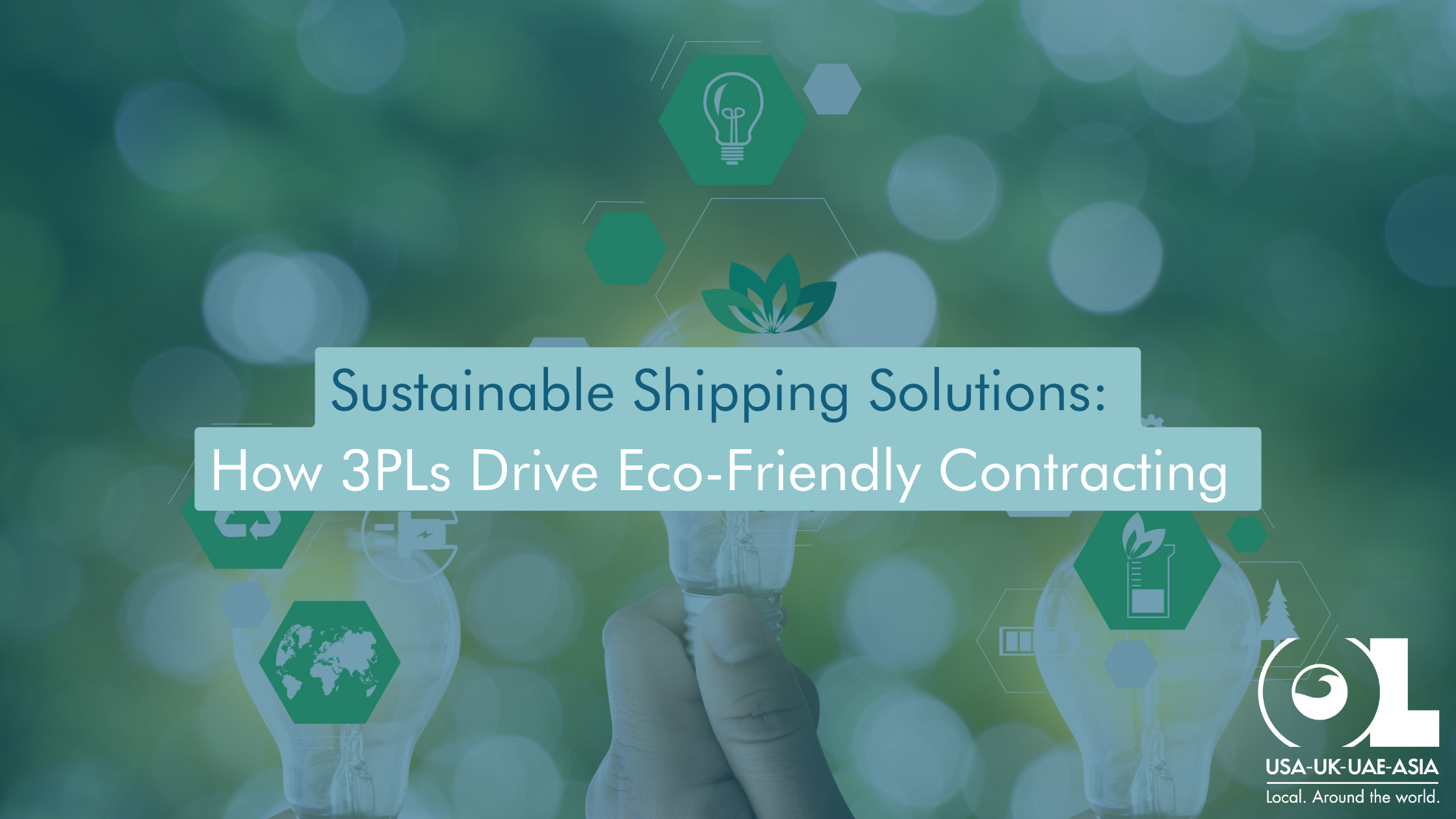In today’s rapidly evolving business landscape, sustainability has transcended its status as a mere buzzword to become an indispensable pillar of modern business practices. As concerns about climate change and environmental degradation continue to mount, companies across industries are recognizing the urgent need to reduce their environmental footprint. Amidst this shift towards sustainability, the logistics industry emerges as a key player in driving transformative change.
Growing Awareness of Environmental Issues in Logistics
In recent years, there has been a notable uptick in awareness surrounding environmental issues within the logistics sector. Traditionally viewed as primarily concerned with the efficient movement of goods, logistics providers are now grappling with the broader implications of their operations on the environment. From emissions generated by transportation vehicles to the excessive use of packaging materials, the logistics industry has come under scrutiny for its contribution to environmental degradation.
Significance of Sustainable Practices
The adoption of sustainable practices in logistics holds immense significance in the fight against climate change and the preservation of natural resources. By implementing measures to reduce carbon emissions, such as optimizing transportation routes and investing in fuel-efficient vehicles, logistics companies can make substantial contributions to mitigating the impacts of global warming. Additionally, embracing sustainable packaging solutions and minimizing waste generation can help conserve precious natural resources and reduce pollution.
Role of Businesses in Driving Positive Change
Businesses wield significant influence in shaping the trajectory of sustainability within the logistics industry. As key stakeholders in supply chain management, companies have the power to drive positive change through eco-friendly initiatives and responsible procurement practices. By prioritizing sustainability in their operations and partnering with environmentally conscious suppliers and service providers, businesses can catalyze a ripple effect throughout the entire logistics ecosystem, fostering a culture of environmental stewardship and accountability.
In essence, the importance of sustainability in logistics cannot be overstated. It is not merely a moral imperative but a strategic imperative for businesses seeking to thrive in an increasingly environmentally conscious marketplace. By acknowledging the significance of sustainable practices, businesses can proactively align their operations with principles of environmental responsibility, ultimately contributing to the creation of a more sustainable and resilient future for generations to come.
How 3PLs Prioritize Sustainability
In today’s era of heightened environmental awareness, sustainability isn’t just a desirable attribute for businesses—it’s becoming an expectation. Recognizing this shift, third-party logistics providers (3PLs) are increasingly prioritizing sustainability in their operations, ushering in a new era of eco-friendly contracting. Let’s delve into how 3PLs are leading the charge towards greener logistics solutions.
Introducing Eco-Friendly Contracting
At its core, eco-friendly contracting entails the integration of sustainable practices into every aspect of the logistics process. From the initial negotiation of contracts to the final delivery of goods, 3PLs are committed to minimizing their environmental impact while maximizing efficiency. By embracing eco-friendly contracting, businesses can reap a multitude of benefits, ranging from cost savings to enhanced brand reputation and, most importantly, a reduced ecological footprint.
Integrating Sustainability Across Operations
One of the defining characteristics of sustainable 3PLs is their holistic approach to integrating sustainability across all facets of their operations. This includes not only transportation but also warehousing, packaging, and supply chain management. From investing in energy-efficient warehouse facilities to implementing recycling programs and promoting the use of renewable energy sources, sustainable 3PLs leave no stone unturned in their quest to minimize environmental harm.
Showcasing Innovative Solutions
Innovation lies at the heart of sustainable logistics, and 3PLs are at the forefront of developing and implementing cutting-edge solutions to minimize environmental impact. For instance, many forward-thinking 3PLs have embraced the use of green packaging materials, such as biodegradable or recyclable alternatives, to reduce waste and pollution. Additionally, advanced route optimization algorithms enable 3PLs to plan more fuel-efficient transportation routes, thereby lowering carbon emissions and reducing fuel consumption.
Advantages of Partnering with a Sustainable 3PL
Collaborating with a 3PL that prioritizes sustainability offers numerous advantages for businesses beyond simply reducing their carbon footprint. Let’s explore some of the key benefits:
Enhanced Corporate Social Responsibility (CSR) Efforts
Aligning with a sustainable 3PL allows businesses to bolster their CSR initiatives by demonstrating a genuine commitment to environmental stewardship. By outsourcing their logistics operations to a partner that shares their values and prioritizes sustainability, businesses can enhance their reputation as socially responsible entities and appeal to environmentally conscious consumers.
Cost-Saving Opportunities
Contrary to popular belief, sustainability and cost savings are not mutually exclusive—in fact, they often go hand in hand. By optimizing transportation routes, reducing packaging waste, and improving energy efficiency, sustainable 3PLs help businesses lower their operating costs and improve their bottom line. Additionally, by minimizing the risk of regulatory fines and penalties associated with environmental non-compliance, businesses can avoid costly legal repercussions.
Reputational Benefits
In today’s competitive marketplace, a strong brand reputation is invaluable. Partnering with a sustainable 3PL allows businesses to differentiate themselves from their competitors and position themselves as leaders in environmental responsibility. This can lead to increased customer loyalty, greater brand trust, and ultimately, a competitive advantage in the marketplace.
Collaborating with a sustainable 3PL isn’t just about reducing environmental impact—it’s about embracing a more responsible approach to logistics that benefits businesses, consumers, and the planet alike. By prioritizing sustainability in their operations and partnering with eco-conscious logistics partners, businesses can pave the way for a greener, more sustainable future.



